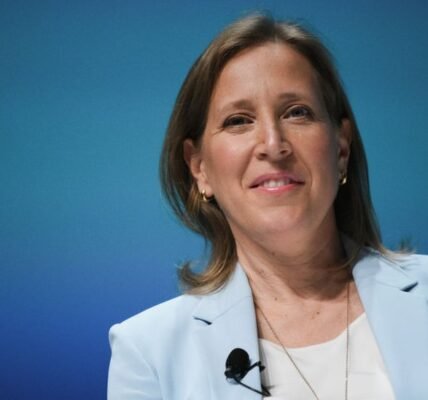Early Life
Anne Boden was born as an only child in a suburb of Swansea, Wales. Her father was a steelworker, and her mother worked in a department store. From a young age, Boden’s parents instilled in her the importance of saving money. At just 11 years old, she managed her school’s bank at Cefn Hengoed Community School, setting the stage for her future in finance.

Education
Driven by a growing interest in science, Anne pursued a Bachelor of Science Joint Honours degree in Computer Science and Chemistry at Swansea University, graduating in 1981.
Career Beginnings
After university, Anne Boden began her professional journey as a Programme Manager at Lloyds Bank. Initially applying as a backup plan, she spent four years at Lloyds, launching her career in finance and IT.
Professional Growth
Boden then joined Standard Chartered Bank, serving as the Head of Systems and Process, UK Corporate Banking, for five years. During this time, she also earned an MBA from Middlesex University.
She next moved to Price Waterhouse Management Consultants, where she worked for three years in the Financial Services Division. Following this, she became Director and Chief Information Officer at Ion Corporation, a role she held for seven years.
Anne’s career continued to ascend as she took on the position of Executive Vice President Europe, Transaction Banking (Payments, Liquidity, Trade) at ABN AMRO Bank N.V. After three years, she transitioned to the Royal Bank of Scotland Group, where she was the Head of EMEA, Global Transaction Services.
Boden then served as the Chief Operating Officer at AID for a year, where she played a key role in revitalizing the bank following the 2008 financial crisis.
Founding Starling Bank
In June 2014, after a distinguished global career, Anne Boden founded her own online banking business, initially named Possible Financial Services. Selling her home for initial capital, she tirelessly sought funding from investors and venture capitalists. It took her two years to raise the first pound, but her perseverance paid off when she secured £163 million in fundraising. Her vision of a mobile-first banking model became a reality, leading to the creation of Starling Bank.
Achievements and Awards
Anne Boden’s achievements in the financial technology sector have been widely recognized. She received an Honorary Doctorate from Middlesex University in 2018 and was awarded an MBE for services to financial technology the same year. As the CEO and a 24% owner of Starling Bank, she is also a Fellow of the Royal Chartered Institute of IT and a member of the FinTech Strategy Group.
Starling Bank Overview
Founded in 2014 by Anne Boden, Starling Bank is a fast-growing UK digital bank, targeting users who manage their finances via mobile phones. As an independent, privately-owned company, Starling Bank has been named Best Bank at the British Banking Awards multiple times. Customers can open a full UK bank account within 20 minutes, with their card delivered within seven days.
Starling Bank offers four different account types – personal, business, joint, and euro – along with a pioneering payment services proposition for businesses. With over 1.5 million customer accounts and £3 billion in deposits, Starling’s innovative tech reimagines banking for modern life, providing users with smart money management tools at their fingertips. All accounts are protected up to £85,000 by the Financial Services Compensation Scheme.
Starling Bank has raised more than £363 million in backing and was awarded £100 million from RBS in 2019 to expand its SME banking services. As a challenger bank born out of the 2008 financial crisis, Starling Bank has opened over one million current accounts for individuals and small businesses. Its app features smart money management tools and a Marketplace that offers third-party financial services. Starling also provides pioneering Banking-as-a-Service and payment services.
Net Worth
While Anne Boden’s personal net worth is not publicly known, her substantial ownership in Starling Bank reflects her significant influence and success in the fintech industry. The bank’s annualised revenue run rate stood at £80 million as of November 2019, with a trajectory to break even by the end of 2020.





